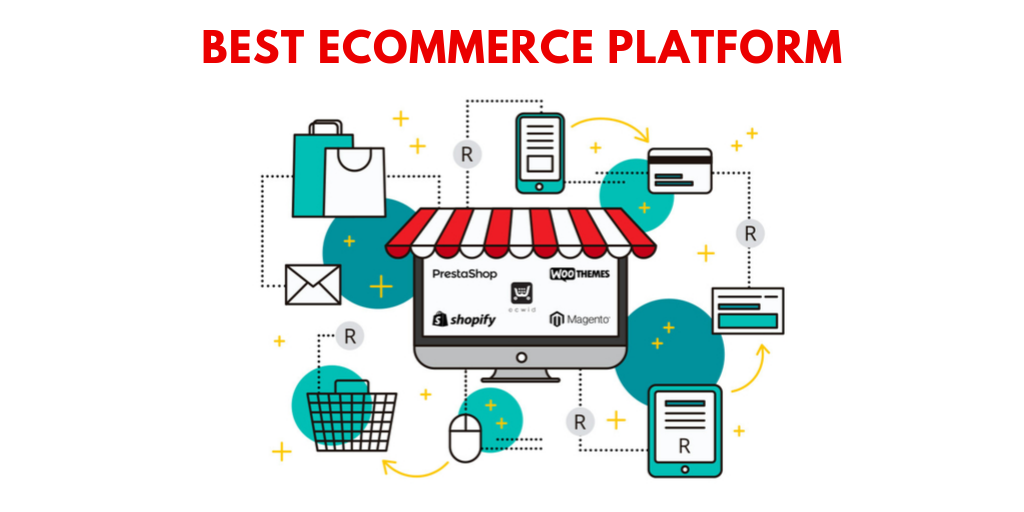Are you new to eCommerce looking to earn some extra money And don’t know where to start? Are you struggling with all the different e-commerce platforms and don’t know which one to pick?
There are pros and cons of all kinds of dropshipping platforms. It will give a more precise idea about which platform to choose. 
Ebay/ Amazon- Marketplace
As we all know, eBay and Amazon are the world’s top 2 retail websites. eBay has 182 million registered users. Amazon has 150 million registered users in 2019, which means millions of consumers go to their website and online shopping.
Customers will search keywords under their engine or browse the category under their website, and eBay or Amazon will provide the delivery product to the consumer. Amazon is a retail website to compare with its merchants, while eBay is (mostly) an auction site with fewer restrictions. Here are the pros and cons of eBay and Amazon.
avantatges
1. The website owns the flow
eBay and Amazon have their traffic, and they own their platform. Their daily exposure will bring many customers to search for your products; It is an excellent place for products to be seen.
2. Top search result by Google
When you search the product by Google engine, products from the marketplace will always be the top search results, which you can see as naturally attracting traffic by Google.
3. Low start-up cost
Due to the shop is build in the marketplace, you will only need to pay the monthly subscription fee for the platform, and eBay or amazon will charge a selling fee when you made sales. No need for web development, it will save tons of energy and money.
4. Relatively substantial income at the beginning stage
According to the marketplace’s advantages, for eCommerce newbies, their initial income at the beginning stage will be relatively high. You may even have revenue on the first day. However, running an independent website won’t make a lot initially; it’s more like starting from scratch.
We have talked about all the pros of selling in the marketplace, and now we will discuss the cons. Besides the quick start-up money, and having their brand traffic, there are also some petty significant cons.
Desavantatges
1. Strict shipping time frame
The marketplace focus on building its reputation and tons of sellers. They evaluate each seller by consumer experience. And consumers’ concerns are product quality and the shipping time frame—That’s why the marketplace usually has a penalty mechanism.
2. Can’t direct contact with customers
Marketplaces like eBay, and Amazon are building their brand and their reputation. We are just one of the many sellers who are using their platform. You will not have access to the customer’s email list, which means you won’t be able to email them for new products or find out why they gave up the purchase at the last minute.
3. High competitive for hot selling products
Customers purchase products mostly by searching for keywords in the marketplace. They usually have an idea that they wished to purchase. This means that clients won’t even notice your work if you don’t have an outstanding or eye-catching product. Choosing the right niche will be the key.
Shopify/Woocommerce- Independent website
The marketplace is the most accessible place for eCommerce newbies to start their businesses. But it isn’t the only option. Many people will go with an independent website like Shopify i Woocommerce.
They are commerce platforms that allow anyone to set up an online store website and sell their products. You will have your domain name and build your brand. Shopify and Woocommerce are the top 2 platforms to build a web store.
Shopify has more features, but with a monthly subscription fee. Woocommerce is free and more like Shopify’s simplified version but has fewer basic features. Here are some pretty obvious pros for this type of store.
avantatges
1. Own the website
You have paid for the website, so it is your own website. There is no need to worry about being kicked out of the game and giving you enough security and full control.
2. Able to access the customer list
Since you own the website, you have full access to your current and potential customers’ profiles. With this information, you will email them or message them about new products or give a discount for future purchases.
For example, a customer has added a product to the cart but gave up the payment at the last minute for an unknown reason. You could send an email to give a discount. It may change his mind.
3. Higher profit compares to eBay/ Amazon
Excluding platform monthly subscription fees, warehousing fees, and seller fees, the margin doesn’t leave a lot. Despite the advertising cost, have your own website, there won’t be anyone else to bite your cake.
Shopify or Woocommerce all have cons as independent websites.
Desavantatges
1. High start-up cost to build a website
Building a website never is an easy thing. Even though Shopify or Woocommerce offers basic features, to create a fancy website, you still need to pay for all kinds of plugins to add more essential features like payment gateway, and up-selling. A monthly subscription fee plus a few plugin costs or extra costs like web design will need to hire professional staff to design it for you.
2. Require Marketing Strategy
Having an independent website only means you have a website. You still will need to tell people to visit your site. Running ads is the channel to inform people that your store is open.
Unlike telling stories to friends and relatives, advertising is more open to the public. So this will requires you to have sufficient advertising knowledge to avoid the detour.
3. Need to have a fulfillment supply chain
Unlike Amazon, Shopify and Woocommerce do not have their warehouse and shipping companies. Amazon gives you options to choose between using its warehouse and logistic service or not. But Shopify or Woocommerce will require a full fulfillment supply chain, which means you will need to find a supplier and logistics, sometimes even warehouses to store the products.
So if you want to CJdropshipping will be an ideal option; it offers a full fulfillment supply service. You will only need to focus on your customers, CJ will handle starting from contacting the supplier until delivery to customers.
Paraules finals
Until now, you may ask about the marketplace or independent website, which will be the best option? Does it look like they all have their pros and cons? There isn’t the best platform for all, which one is more suitable for you will up to your dominant position.
eBay or Amazon is easy to earn start-up money and Shopify or Woocommerce will have more security and focus on brand building. Sticking with one platform is a choice, Or you could go start with the marketplace to cultivate a fan base and slowly transfer your client to your website for higher margins.






